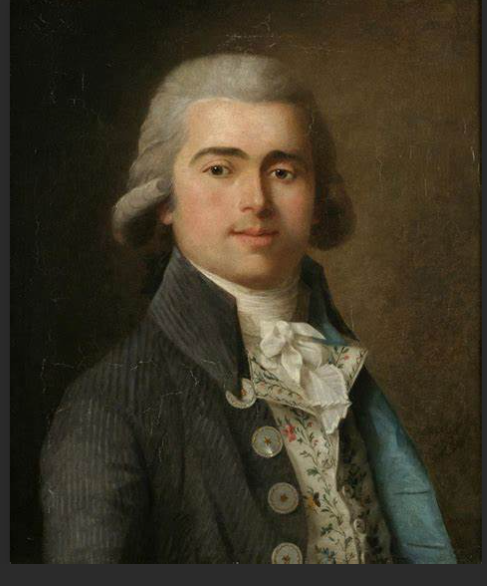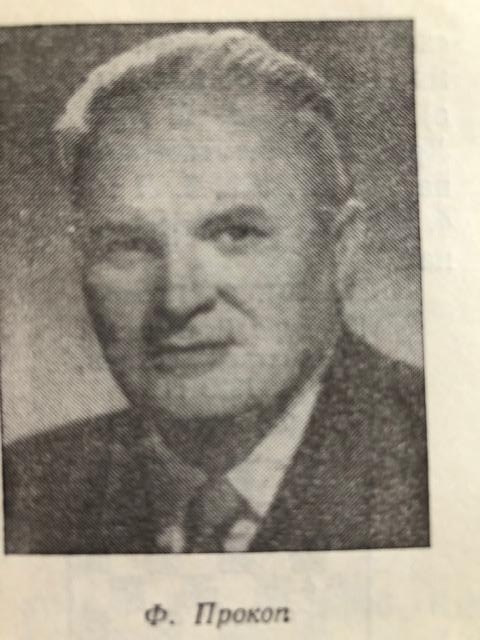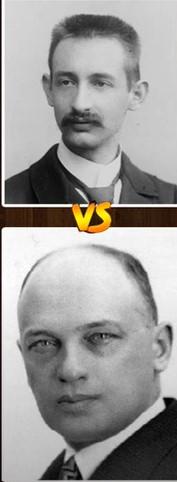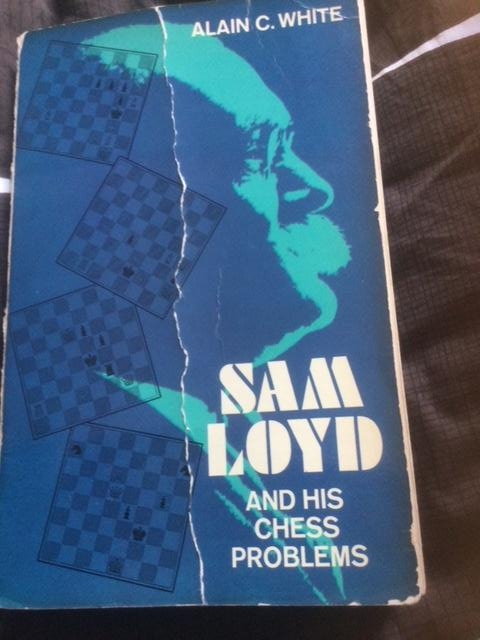This first lesson of the new school year got off to a slow start, with Teams playing a few nasty tricks on us.
However, the group of faithful listeners finally managed to make the connection (and the Master, of course!), and the class eventually got under way.
A fine Rook endgame to start with, where a very convoluted systematic manoeuvre is required to win.
This was followed by a game of Tarta, which, like other players, is also a good customer for the shared neuron of the lesson's listeners.
And finally, a few heterodox compositions, including one that's worth spending some time with your head in your hands!
The next session will be held on october 26.
Enjoy your reading.
Master's words

 "I would rather be blind boy Than to see you walk away from me" (Etta James). https://youtu.be/uZt1xKtPbUQ
"I would rather be blind boy Than to see you walk away from me" (Etta James). https://youtu.be/uZt1xKtPbUQ
"I believe for every drop of rain that falls A flower grows I believe that somewhere in the darkest night A candle glows I believe for everyone who goes astray, someone will come To show the way. I believe above a storm the smallest prayer Will still be heard I believe that someone in the great somewhere Hears every word. Everytime I hear a new born baby cry, Or touch a leaf or see the sky Then I know why, I believe" (B. Hatfield, 1965). https://youtu.be/28AVCRnoA80
« ¡Pero estos no son hombres, son demonios! » (But they are not men, they are demons) (colonel Milán during the Camerone battle, 30-4-1863).
"If you don't know who you are, if you already identify yourself as a hybrid between a man and a woman, it's easy to be persuaded to become a hybrid between a human and a machine." (A. Huxley).
"The worst thing about democracy is not the low ideas it spreads, but the high ideas it distorts." (A. Bonnard).

 "When I judge myself, I grieve; when I compare myself, I am reassured." (Talleyrand).
"When I judge myself, I grieve; when I compare myself, I am reassured." (Talleyrand).
"When the nation ruins the family, the family takes its revenge by dragging the nation down with it." (A. de Rivarol).
« People always get the governments they deserve. All the more so when that government is elected. » (P.-A. Cousteau).
« I've got a hankering to travel, Oceania, Bora-Bora, the vahines, you know? -- Why? Do you want to take me with you? -- You don't take sausages with you when you go to Frankfurt. -- You could say ‘a rose when you go on the Loire’, a question of terminology. » (André Pousse and Dany Carrel in "Le pacha", 1968).
The solution to Daniel's little exercise on forks. Just an appetizer.
 You have a Rook and a Rook-pawn against a Rook. If I tell you that, in order to win, you have to push your opponent's king to the other side of the board, to the other rook file, you'll find it hard to believe. Until you have the good fortune to discover the study by F. Prokop 1956. If I now tell you that a self-respecting chess school should show this marvel as a priority, you will reply that there is no chess school in France. And unfortunately you would be right.
You have a Rook and a Rook-pawn against a Rook. If I tell you that, in order to win, you have to push your opponent's king to the other side of the board, to the other rook file, you'll find it hard to believe. Until you have the good fortune to discover the study by F. Prokop 1956. If I now tell you that a self-respecting chess school should show this marvel as a priority, you will reply that there is no chess school in France. And unfortunately you would be right.
In passing, we come across several triple echoes, to the delight of problemists. Another curiosity from the same endgame: a White Rook draws, when faced with a Black pawn on a5, when it is on a1 but loses when it is on a8, contrary to the principles!
 For the next session, a Knight and two pawns versus Bishop and pawn endgame, played and analysed (very well, unlike who you know) by a world-class grandmaster. Then a pawn endgame: will you play as well as the French number 1? Or better? Two easy twins if you've read a certain book, and finally a tactical masterpiece with a Rook and ‘light’ pieces..
For the next session, a Knight and two pawns versus Bishop and pawn endgame, played and analysed (very well, unlike who you know) by a world-class grandmaster. Then a pawn endgame: will you play as well as the French number 1? Or better? Two easy twins if you've read a certain book, and finally a tactical masterpiece with a Rook and ‘light’ pieces..
Brilliant and famous game of the day, commented in the style of the great Tartacaviar, abundant but refined! A beauty prize? Almost! The judges are ‘human, all too human’.
 Taking advantage of the summer break, I finally read a book which had been offered to me in 1973 (!) and which I had only consulted (about a hundred times). Its author, A. C. White, had three things in common with your ‘master’: his first name was Alain, he lived in Cannes and he collected chess problems. You've guessed it's his marvellous work (nearly 500 pages long) on Sam Loyd, the first great genius of the problem, chronologically at least.
Taking advantage of the summer break, I finally read a book which had been offered to me in 1973 (!) and which I had only consulted (about a hundred times). Its author, A. C. White, had three things in common with your ‘master’: his first name was Alain, he lived in Cannes and he collected chess problems. You've guessed it's his marvellous work (nearly 500 pages long) on Sam Loyd, the first great genius of the problem, chronologically at least.
Among the gems in this very dense book is a statement that can only be understood if you know something about SL's biography (born in 1841). After an astonishing creativity from the age of 14, he stopped composing at 27, for about 8 years (incidentally married at 29). And what does he say when he gets creative again? ‘You may find it hard to believe, but I had given up chess so much that I didn't recognise my compositions: I had to solve them as if I'd never seen them. And strangely enough, I found them infernally difficult, until I discovered a peculiarity of my style that I had never noticed before, after which I was able to solve them in a ‘shameful’ way. Here's what I discovered: almost invariably, I'd placed the pieces in such a way as to encourage the solver to come up with a false idea. After this discovery, everything became very easy'. Then he composed this 5# from 1878 (‘Laughing Man’), which is a kind of parody, according to White, of this ‘false idea’ theory: on the contrary, the key is obvious, and the difficulty comes afterwards!
A selection of works, including his two brothers, whose style is certainly not out of place. Pitiless towards himself, the number of his own problems that he describes as ‘monstrosities’ is impressive: in one of them, he goes so far as to mention 104 duals! But no such thing in our selection...
In our choice of 2#, the 1st, 3rd, 5th, 8th & 12th seem the strongest (except for those who have known the 3rd for 60 years!). Thomas's 3# is entertaining, his other brother's two considerably more difficult, although the theme of the first is very well known. The other 3# are more accessible, except for the 4th & 7th. As for the 4#, the 4th will give you courage. We'll leave you with the solution to the 6th, as well as the 5# mentioned earlier and another 5# with an unexpected under-promotion.

 Petko Petkov, the titan of artistic composition, has passed away. To pay tribute to him would take at least 4 sessions, excluding endgames and games. R.-J. Millour accompanied him; 13 works by him are already in our course (36 for Petkov). Seeing geniuses die, at a time when so many degenerates from all walks of life are doing marvellously well, is a bit hard to bear...
Petko Petkov, the titan of artistic composition, has passed away. To pay tribute to him would take at least 4 sessions, excluding endgames and games. R.-J. Millour accompanied him; 13 works by him are already in our course (36 for Petkov). Seeing geniuses die, at a time when so many degenerates from all walks of life are doing marvellously well, is a bit hard to bear...
Enjoy your meal. See you in a few weeks if Deus vult.
Add a comment